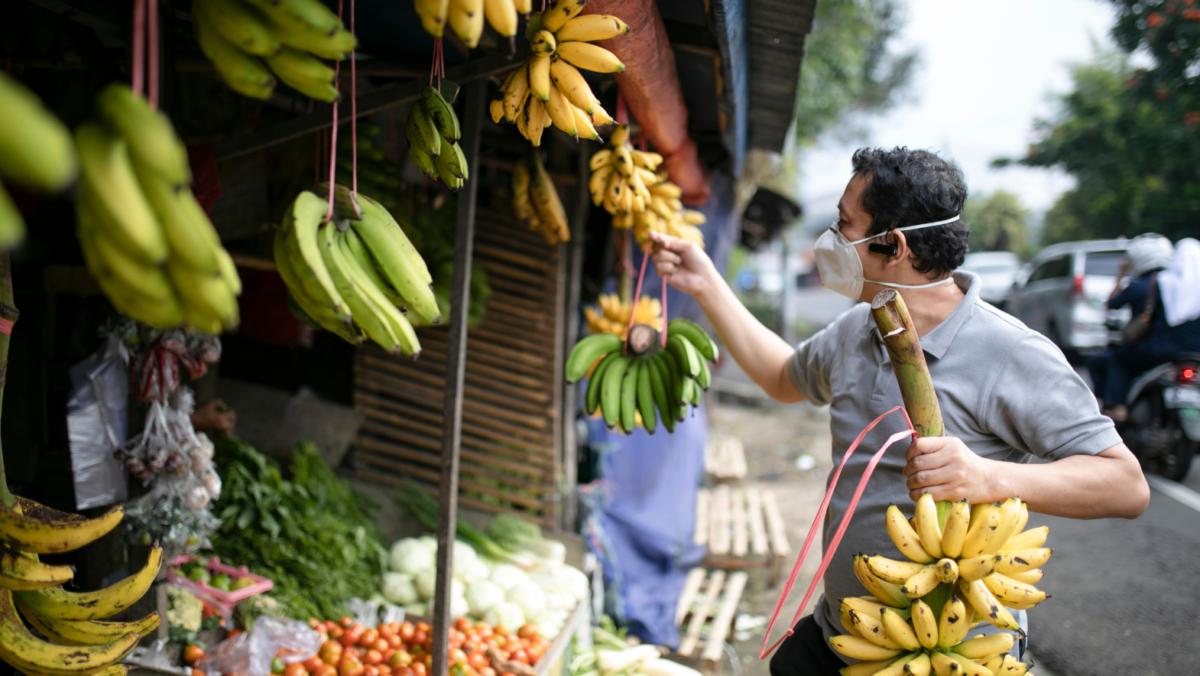Nutrition insecurity hits Asian Americans the hardest, LA study says
 Nutrition insecurity is becoming prevalent among Asian Americans in Los Angeles County, according to a new study.
Nutrition insecurity is becoming prevalent among Asian Americans in Los Angeles County, according to a new study.
This issue, expanding beyond not having enough food to eat, covers substantial disparities in food access that affect Asian Americans’ mental and physical health.
Over 1,000 adults in LA County were surveyed by researchers at USC from Dec. 5, 2022, to Jan. 4. 2023, to identify the rates of food and nutrition insecurity in the county.
This recent study – published by the USC Dornsife College of Letters, Arts and Sciences – shows that Asians in LA County are more than twice as likely to struggle with nutrition insecurity compared to the county’s white residents.
About 1.4 million adults in the area face nutrition insecurity, with young adults, Asians and Hispanics at greater risk, according to the study.
The lack of access to nutritious food has been linked to several health problems, such as diabetes and depression, the study shows.
What is nutrition insecurity
People who face food insecurity are those who don’t have the money to buy enough food. On the other hand, people who struggle with nutrition insecurity are those who can buy groceries but find it hard to access healthy food options that meet their religious, cultural or dietary needs.
As a result, those facing nutrition insecurity turn to processed junk food with empty calories and high fat content, leading to poor health.
Food insecurity (lacking food) and nutrition insecurity (lacking healthy food) are all too common, and affect somewhat different segments of our community. Both are strongly linked to poor physical and mental health: https://t.co/Sv7I7qplXm
— Kayla de la Haye (@kayladelahaye) July 9, 2024
“We’re really understanding now that poor nutrition has so much to do with the food environment that you’re in, as opposed to folks making bad health choices,” Kayla de la Haye, who leads USC’s Institute for Food System Equity, told LAist.
Although the study didn’t delve deeply into why Asians have the hardest time finding healthy food, de la Haye explained that even in a region as diverse as LA County, some Asians live in areas where their food preferences are hard to access.
“They might have to travel further,” she added. “Or the types of foods they’re looking for might not be as available to them.”
This study didn’t come as a surprise to local food equity leaders. Alba Velasquez, executive director of the Los Angeles Food Policy Council, emphasized the lack of Asian produce in grocery stores around the county.
“Japanese radish, bitter melon, bok choy, taro, eggplant,” she stated. “When we think of access to healthy food, unfortunately it’s not touching on these culturally relevant foods.”
Other key takeaways
- Statistics: In 2022, 24 percent of Angelenos were food insecure while 25 percent were nutrition insecure. Overall, around 1.4 million people faced both issues.
- Demographics: Hispanics are more likely to face food insecurity. Young adults below 40 years old are five times more likely to undergo both as compared to those over 65 years old.
Nutrition insecurity and food insecurity are challenges that communities face worldwide.
For example, Filipinos in Canada have faced the same struggles, as revealed by the 2021 Canadian Income Survey. The percentage of food-insecure families surged from 16 percent in 2021 to 18 percent in 2022.
Solutions on the horizon
To properly address the issue of nutrition insecurity, inclusive food assistance programs are vital. Velasquez highlights the significance of access to Asian fruits and vegetables in these projects — a mission for groups like the API Forward Movement.
Another approach is to boost farmer’s markets with language assistance. Hunger Action Los Angeles has implemented such an initiative with their weekly market in West Adams.
From community initiatives to policy updates, ensuring everyone has access to healthy and culturally appropriate food is critically important.
As Velasquez puts it, “We need to make sure our food systems are as diverse as our communities.”

